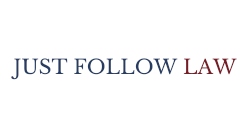This TMA was initially given on the 27th of February 2021. Many of us 1Ls, including myself, got this totally wrong. Here is my 2nd attempt at the TMA.
In this assignment, you are expected to assemble and employ your resources for research, analyse the gathered materials and finally discuss and present your arguments in a way that is comprehensible to others.
Using IT resources, including LawNet, demonstrate your understanding of how these resources may be used to research an area of law, by searching for the legal case which is referenced by an academic with the phrase “a violet thread [that] was sewn into the fabric of justice more than 50 years ago”. The reference is to a Singapore Court of Appeal decision which first posited that the court always had the discretion to exclude illegally obtained evidence if its probative value is outweighed by the prejudice to the administration of justice.
In your answer –
- Identify the legal case.
- Explain briefly what the case is concerned with?
The legal case is Cheng Swee Tiang v Public Prosecutor [1964] MLJ 291
The appellant Cheng Swee Tiang (“Cheng”) was charged with assisting in the carrying or a public lottery. Two police officers, under the instruction of a senior police officer, entered Cheng’s shop and bought numbers in the lottery for the purpose of entrapping Cheng.
Cheng was charged under s 10(1) of the Common Gaming Houses Ordinance where a person selling lottery tickets shall be presumed until the contrary is proved to be assisting in a public lottery then in progress.
The issue is whether the court should disallow the evidence as it was illegally obtained.
The counsel for the appellant put forth the following arguments:
- The sergeant who bought the lottery was an agent provocateur and he obtained evidence by committing an offence himself;
- That in the exercise of its discretion and as a matter of public policy the court should exclude evidence obtained by law enforcement officers by consciously unlawful means;
- There was a miscarriage of justice in that the magistrate admitted evidence illegally obtained without adverting to the discretion in the court to reject such evidence or alternatively on erroneous principles. This is in reference to statements made by Cheng to the sergeant.
- The magistrate erred in law accepting bare expression of opinion of the expert witness without indicating reasons on which his opinion was based.
The court mentioned that while courts have criticised the use of agent provocateurs, they have consistently admitted evidence by such persons provided its admissibility does not operate unfairly against an accused.
The court decided that the matter of exercising discretion as a matter of public policy, there was no precedence set by any authority which is binding to the court. There is also no express statutory provision for courts in Singapore to recognise such a discretion. Moreover, the doctrine of public policy has been frowned upon by the courts as it is difficult to define and apply.
The court agreed that the statements made by Cheng to the sergeant were inadmissible based on Section 121(1) of the CPC (Cap 132).
The court decided that the defence counsel’s submission was not quite correct. He stated that his opinion was based on fact but his opinion was discredited and should have been disregarded.
Despite the exclusion of these two sets of evidence, the court decided that the other evidence that was collected was admissible and thus there was still enough evidence to support the conviction. Moreover, Cheng did not rebut the presumption. Therefore the appeal was dismissed.


Leave A Comment